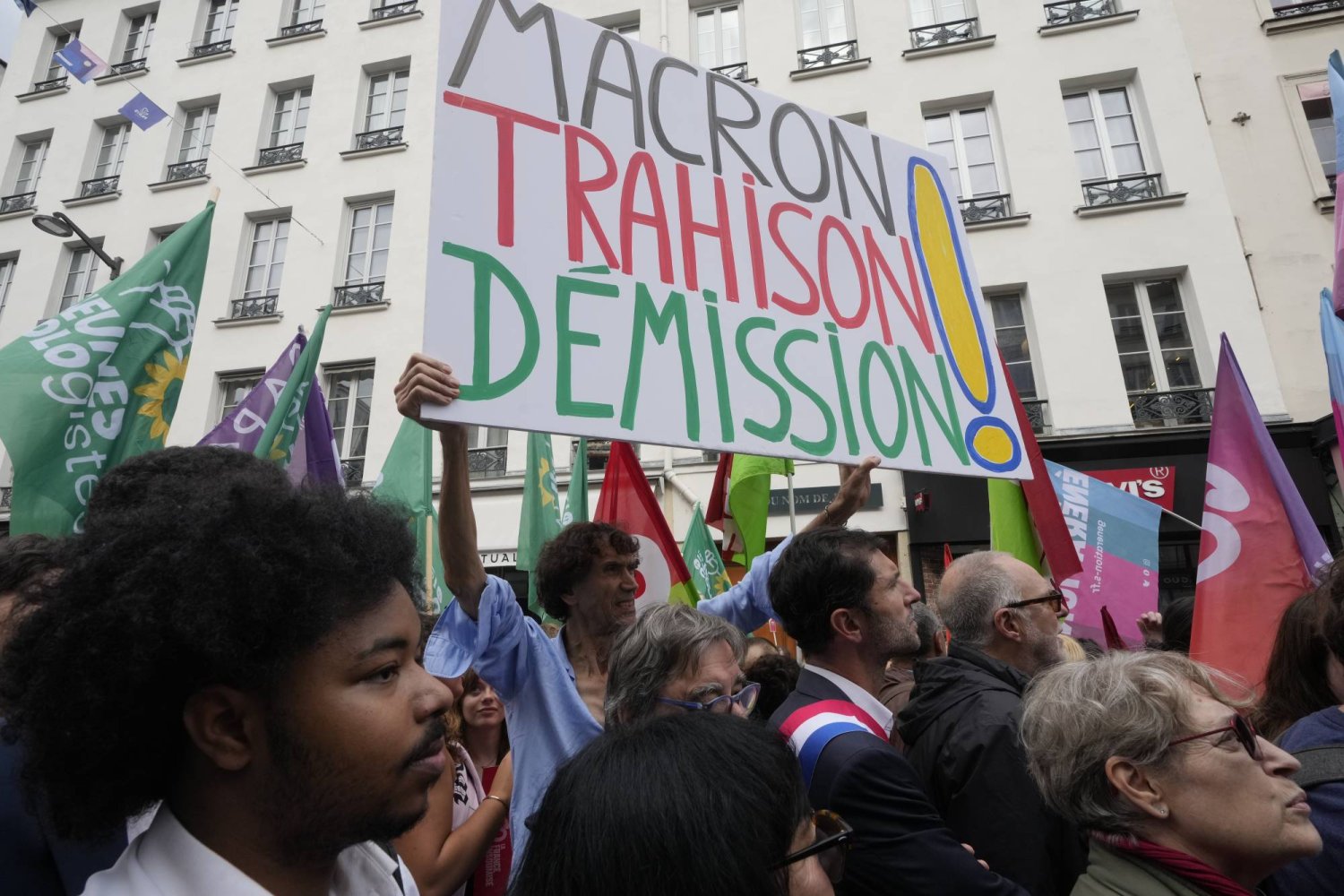Nationwide Protests
Massive protests have erupted across France in response to President Emmanuel Macron’s controversial decision to appoint Michel Barnier as the country’s new prime minister.
The appointment has sparked widespread discontent, with critics accusing Macron of undermining the democratic process and effectively “stealing” the legislative elections.
On Thursday, Macron announced that Michel Barnier, a 73-year-old conservative and former European Union Brexit negotiator, would be the new prime minister.
This decision followed a prolonged and contentious search, triggered by the recent legislative election, which resulted in a hung parliament divided into three distinct blocs.
In his initial address as the newly appointed prime minister, Barnier acknowledged the challenge ahead, noting that his government would include members from various political backgrounds—conservatives, members of Macron’s own camp, and potentially some from the left.
His primary tasks will include pushing through significant reforms and managing the 2025 budget, all while France faces mounting pressure from the European Commission and bond markets to address its fiscal deficit.
The left, particularly the far-left France Unbowed (LFI) party, has strongly criticized Macron’s choice. They argue that Macron’s refusal to select the candidate from the New Popular Front (NFP) alliance—who won the most votes in the July elections—constitutes a breach of democratic principles.
Polls reflect public dissatisfaction, with a recent Elabe survey indicating that 74 percent of French citizens believe Macron has ignored election results, and 55 percent feel he has manipulated them.
In reaction to Barnier’s appointment, left-wing leaders, unions, and student organizations have organized extensive protests. Over 130 demonstrations are planned across France, with additional strikes anticipated on October 1.
The LFI and other groups are mobilizing significant public opposition, further intensifying the political climate.
Barnier is engaged in ongoing consultations to form a government, a complex task given the fractured political landscape.
The NFP and the far-right National Rally (RN) together hold a parliamentary majority and could potentially force Barnier out through a no-confidence vote if they coordinate their efforts.
The RN has indicated a willingness to work with Barnier under certain conditions, positioning itself as a key player in the new government’s survival.
RN leader Jordan Bardella described Barnier as a “prime minister under surveillance,” highlighting the precarious nature of his position and the necessity of navigating the diverse and often contentious political environment.
I am a dynamic professional, specializing in Peace and Conflict Studies, Conflict Management and Resolution, and International Relations. My expertise is particularly focused on South Asian Conflicts and the intricacies of the Indian Ocean and Asia Pacific Politics. With my skills as a Content Writer, I serve as a bridge between academia and the public, translating complex global issues into accessible narratives. My passion for fostering understanding and cooperation on the national and international stage drives me to make meaningful contributions to peace and global discourse.










